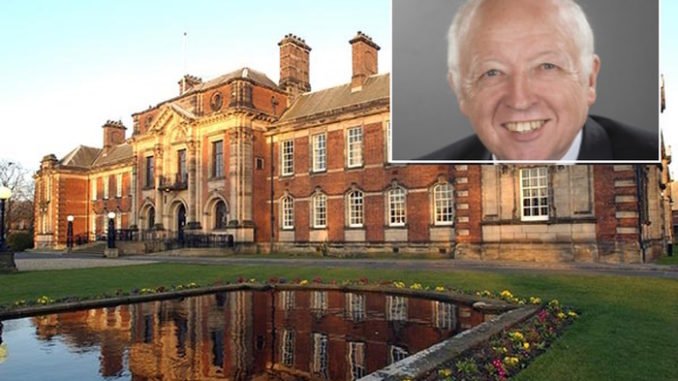
The new North Yorkshire Council is set to increase council tax by 4.99 per cent — the maximum allowed without having to hold a referendum.
The move will mean an extra £87.80 for an average Band D property to a total bill of £1,847.62.
Council officials say the increase is needed to avoid cuts to key services.
They add that the council is only in good financial shape because of the savings that can be made because of the benefits of bringing the previous eight councils in North Yorkshire into a single organisation.
Plans for the council’s budget for the next financial year have been revealed today with councillors say they reveal the benefits that are due to be realised following the creation of the authority in April 2023.
Council chiefs say launch of the council has coincided with massive pressures on finances for the public sector across the country, and it is facing a predicted shortfall of more than £32 million in its budget for the second year of its operation if savings are not made.
However, they claim the majority of frontline services are set to be protected from swingeing cuts that are having to be enforced by other local authorities because of the benefits of bringing the previous eight councils in North Yorkshire into a single organisation.
North Yorkshire Council’s leader, Cllr Carl Les, said the launch of the new council has seen the possibility of achieving in the region of £40 million in savings, with more financial benefits set to be achieved over the coming years.
“We have always been aware of the benefits of bringing services under the control of one council, and a great deal of work has been undertaken to ensure that these can come to fruition.
“The council is still not a year old, but we can see just what it means to have a single authority to cover the whole of North Yorkshire.
“As a council, we know the financial pressures which taxpayers are facing, and we are committed to ensuring that every pound of residents’ and businesses’ money is used as effectively and efficiently as possible.”
A medium-term blueprint has identified £46 million in savings across the next three financial years.
Of that figure, more than £36 million is set to be brought about by the biggest overhaul of local government in North Yorkshire for almost half a century.
It is claimed the savings brought about by local government reorganisation are not impacting on frontline services and are due to include efficiencies of almost £11.8 million from bringing together services, a saving of £6.7 million in support services and nearly £2 million in transforming technology and streamlining IT systems.
The proposed budget would see £6.5 million of the council’s reserves used to balance the books in the next financial year.
North Yorkshire Council’s deputy leader, Cllr Gareth Dadd, who is also the executive member responsible for finance, said: “We have had to look extremely closely at the proposed budget and while we are acutely aware of the financial pressures which people are facing, we have to balance this with the fact that key services would have to be cut without a rise in council tax.
“We will continue to support those most in need in North Yorkshire, and we have managed to achieve savings that will protect the vast majority of frontline services.
“I would suggest that the proposed savings are among the least controversial of anywhere in the country, and this has been brought about thanks largely to the opportunities of local government reorganisation and also prudent management of our finances over many years.”
Among the savings that are being proposed are changes to home to school transport which would mean that families are given funding for pupils to attend their nearest school rather than in the wider catchment area, and fees and charges are also set to increase to reflect inflation.
Members of North Yorkshire Council’s executive are due to meet on Tuesday next week to discuss the proposed budget. If approved, it will be considered at a full council meeting next month (February), before it is adopted for the council.


Be the first to comment